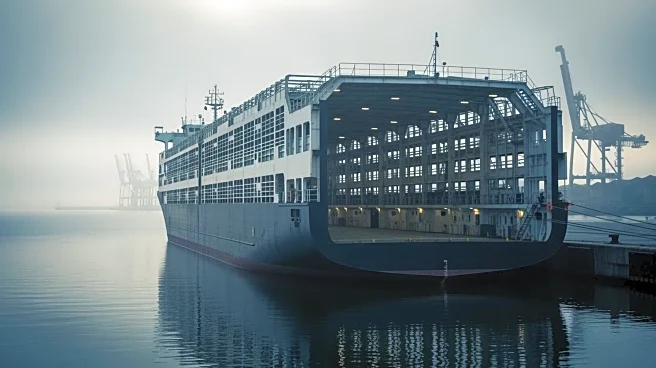What's Happening?
The livestock carrier Spiridon II, carrying approximately 2,900 dairy cattle, has been forced to return to sea after Turkish authorities rejected its cargo. The rejection has raised significant animal
welfare and pollution concerns, as the ship struggles to manage the waste produced by the cattle. The situation is exacerbated by the lack of facilities to properly dispose of animal waste and carcasses, which are accumulating onboard. The ship's conditions pose health risks to both the animals and crew, with potential for diseases such as dermatitis and conjunctivitis.
Why It's Important?
This incident highlights the challenges and ethical concerns associated with the global live animal export industry. The inability to offload the cattle not only endangers animal welfare but also raises environmental concerns due to the potential pollution from waste discharge. The situation underscores the need for international regulations and protocols to manage such crises effectively, ensuring humane treatment of animals and minimizing environmental impact.
What's Next?
The Spiridon II must find a port willing to accept the cattle or face the difficult decision of euthanizing the animals to prevent further suffering. The incident may prompt calls for stricter international regulations on live animal exports and better contingency plans for rejected shipments. Stakeholders, including animal welfare organizations and regulatory bodies, are likely to push for reforms to prevent similar situations in the future.









